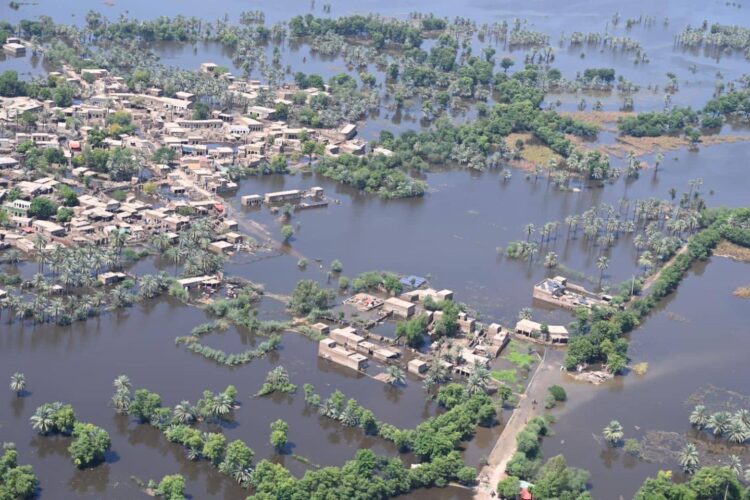ISLAMABAD – The Foreign Office on Monday confirmed that India had contacted Pakistan twice within 24 hours to share advance flood warnings, even though New Delhi earlier declared the Indus Waters Treaty (IWT) “in abeyance” following the Pahalgam attack in April.
According to FO Spokesperson Shafqat Ali Khan, India conveyed alerts through diplomatic channels rather than via the Indus Waters Commission, as stipulated under the treaty. “On August 24, India communicated flood warnings through the High Commission in Islamabad. We reiterate that such communication must take place through the IWT framework, which India is legally bound to respect,” Khan said.
The latest alert concerned possible flooding in the Sutlej River, hours after India had earlier warned about extraordinary water discharge in the Tawi River at Jammu, which flows into the Chenab. Following these communications, Pakistani authorities issued precautionary advisories and evacuated thousands from vulnerable areas along the Sutlej, where the river reached a dangerous flow of nearly 130,000 cusecs at Ganda Singh Wala. Punjab remains on high alert ahead of the fresh monsoon spell.
Indian officials, speaking to Reuters on condition of anonymity, said the alerts were shared “on humanitarian grounds” rather than under the IWT. The Indian foreign ministry has not publicly commented.
The development comes against the backdrop of New Delhi’s suspension of the 1960 World Bank–mediated treaty, which survived three wars and decades of tensions. India took the step in April after the Pahalgam attack in occupied Kashmir killed 26, blaming Pakistan without evidence. Islamabad rejected the allegation and warned that obstructing its water share would be treated as an “act of war”.
The May standoff between the two nuclear-armed rivals escalated into the heaviest military clashes in decades before a US-brokered ceasefire was reached. Despite the hostilities, Sunday’s and Monday’s alerts mark the first direct contacts on water flows since that confrontation.
Under Article IV (8) of the IWT, both parties are obligated to share, “as far in advance as practicable,” any information about extraordinary reservoir discharges or flood flows that could affect the other side. Pakistani officials argue that India’s choice of diplomatic channels rather than the Commission undermines the treaty’s framework.
The FO reiterated that India’s unilateral declaration to hold the IWT in abeyance is a “serious violation of international law” with potential negative consequences for South Asian peace and stability.
Reports earlier this year suggested that New Delhi is considering projects that could reduce flows of the western rivers allocated to Pakistan, further aggravating concerns in Islamabad. India has stated it will not resume the treaty until Pakistan “irrevocably abjures support for cross-border terrorism” — a charge Pakistan strongly denies.
Despite political tensions, the latest communications underscore the critical importance of uninterrupted water cooperation in a region already vulnerable to climate-driven flooding and escalating security challenges.
























